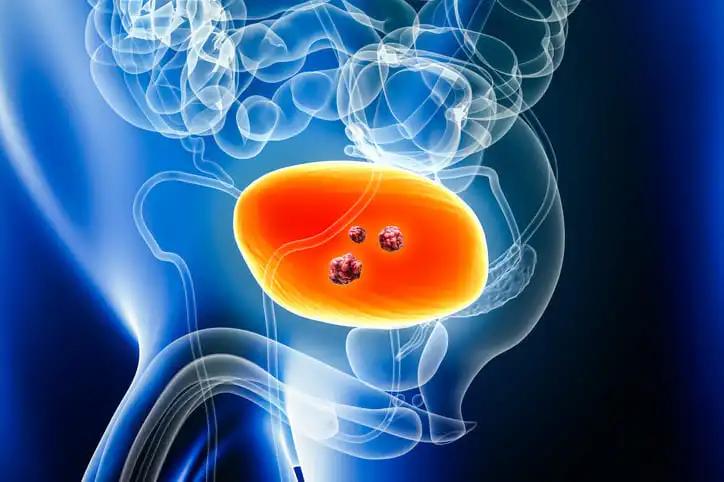KEY TAKEAWAYS
- The study aimed to investigate cryptotanshinone’s effect on NLRP3 in BC under an inflammatory microenvironment.
- Researchers noticed that cryptotanshinone suppresses BC progression by inhibiting NLRP3 expression.
Bladder cancer (BC) is one of the most common malignancies of the urogenital system. This study assessed the role of nucleotide-binding oligomerization domain and leucine-rich repeat and pyrin domain-containing protein 3 (NLRP3) in BC. They examined the effects of cryptotanshinone on BC malignant behaviors and NLRP3 expression within a lipopolysaccharide (LPS)-induced inflammatory microenvironment.
Chenye Tang and the team aimed to assess the interaction between cryptotanshinone and NLRP3 in the context of BC, specifically within an LPS-induced inflammatory setting.
They performed an inclusive analysis by collecting BC tissue specimens from 62 patients for immunohistochemical detection of NLRP3 protein expression. Both BC and normal urothelial cell lines were cultured to detect NLRP3 mRNA and protein levels. To mimic the inflammatory tumor microenvironment, BC cells were pretreated with LPS.
These cells were then incubated with either a low or high dose of cryptotanshinone to evaluate its impact on tumor cell malignant behaviors. Additionally, BC cells were transfected with NLRP3 cDNA to confirm the specific role of NLRP3 in cancer progression in vitro.
About the results, high NLRP3 expression was found to be associated with larger tumor diameters (>2 cm), muscle invasion, and metastasis. Both NLRP3 mRNA and protein levels were significantly higher in BC cells compared to normal urothelial cells. LPS pretreatment notably increased NLRP3 and inflammatory cytokine expression in BC cells, leading to enhanced cell viability, migration, and invasion.
However, cryptotanshinone effectively reduced the LPS-induced upregulation of NLRP3 and inflammatory cytokines, thereby inhibiting BC cell malignant progression. Furthermore, overexpression of NLRP3 via NLRP3 cDNA transfection further accelerated BC cell malignant progression following LPS stimulation and countered the inhibitory effects of cryptotanshinone on LPS-induced malignant behaviors in BC cells.
The study concluded that NLRP3 may have oncogenic activity in BC, and the antitumor effects of cryptotanshinone observed in vitro appear to be linked to its ability to inhibit NLRP3 expression.
No funding information was given for this source.
Source: https://pubmed.ncbi.nlm.nih.gov/39144184/
Tang C, Guo X, Li Y, et al. (2024). “Cryptotanshinone Inhibits Bladder Cancer Cell Malignant Progression in a Lipopolysaccharide-Induced Inflammatory Microenvironment through NLRP3 Inhibition.” Mediators Inflamm. 2024;2024:8828367. Published 2024 Jan 30. doi:10.1155/2024/8828367



